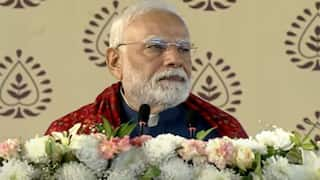Explorer
Advertisement
'Third country's' Army could enter Kashmir on behalf of Pakistan, says Chinese media

The Chinese state media have carried a barrage of critical articles on the Doklam standoff criticising India, but this was the first time Pakistan and Kashmir have been brought into the narrative. Photo: AFP
BEIJING: A "third country's" Army could enter Kashmir at Pakistan's request, using the "same logic" the Indian Army used to stop the Chinese military from constructing a road in the Doklam area in the Sikkim sector on behalf of Bhutan, an analyst at a Chinese think tank said.
"Even if India were requested to defend Bhutan's territory, this could only be limited to its established territory, not the disputed area," Long Xingchun, Director at the Centre for Indian Studies at China West Normal University, said in the article he wrote in the Global Times.
"Otherwise, under India's logic, if the Pakistani government requests, a third country's Army can enter the area disputed by India and Pakistan, including India-controlled Kashmir," the article said.
The Chinese state media have carried a barrage of critical articles on the Doklam standoff criticising India, but this was the first time Pakistan and Kashmir have been brought into the narrative.
"Indian troops invaded China's Doklam area in the name of helping Bhutan, but in fact the invasion was intended to help India by making use of Bhutan," it said, referring to the June 30 statement issued by India's External Affairs Ministry.
China and India have been engaged in a standoff in the Doklam area near the Bhutan tri-junction for the past three weeks after a Chinese Army's construction party attempted to build a road. Doka La is the Indian name for the region which Bhutan recognises as Doklam, while China claims it as part of its Donglang region.
Of the 3,488-km-long India-China border from Jammu and Kashmir to Arunachal Pradesh, a 220-km section falls in Sikkim.
"For a long time, India has been talking about international equality and non-interference in the internal affairs of others, but it has pursued hegemonic diplomacy in South Asia, seriously violating the UN Charter and undermining the basic norms of international relations," it said.
"Through mass immigration to Sikkim, ultimately leading to control of the Sikkim parliament, India annexed Sikkim as one of its states," it alleged.
"This incursion reflects that India fears China can quickly separate mainland India from northeast India through military means, dividing India into two pieces," it said.
"In this case, northeast India might take the opportunity to become independent. India has interpreted China's infrastructure construction in Tibet as having a geopolitical intention against India. India itself is unable to do the same for its northeastern part, so it is trying to stop China's road construction," it said.
"India's incursion, based on its own strategic judgment, is a clear violation of international law," the article said, claiming that the western countries will not unconditionally support India as they have a wide range of "common interests" with China.
"As for the territorial dispute between China and Bhutan, it should be resolved by both sides and India must respect Bhutan's sovereignty," it said.
"China can show the region and the international community or even the UN Security Council its evidence to illustrate China's position. It highlights China's sincerity and effort to maintain peace as a responsible big power. It will never resort to force till it is the last choice," it said.
Another article in the same daily said India must desist using the "Dalai Lama card" and mess up relations with China.
Referring to reports that the "Tibetan national flag," a pro-independence symbol adopted by the Tibetan government-in- exile, was unfurled on the shores of Bangong Lake, known as Pangong Tso Lake in India's in Ladakh region, the article said the timing on the incident coincided with the standoff between the two militaries in Doklam area and whether Indian authorities instigated the political activity of Tibetan separatists to exert pressure on China
"The lake sits astride India and China, with the Line of Actual Control passing through it. It's the first time the Tibetan exile administration in northern India has flown the flag at this location," it said.
"The timing of the flag-hoisting on Indian territory has sparked wide speculation over whether the Indian authorities instigated the political activity of Tibetan separatists to exert pressure on China. Although the involvement of New Delhi remains unclear, we hope they did not send any signal of approval," it said.
"New Delhi publicly promises not to allow any anti-China political activities by Tibetan exiles on Indian territory. But it has long used the Tibet question as a diplomatic card in dealing with Beijing," it said.
"When the Indian government attaches great importance to its relationship with China, it keeps a tight grip on anti-China political activities on its soil. However, when it is dissatisfied or has conflicts with Beijing, the Tibet card is played up. But India may overestimate the influence of Tibetan exiles," it said.
"With the rise of China and as Tibet becomes better off, Tibetan independence runs counter to the will of Tibetans. The space for Tibetan separatists has been largely squeezed as more Western countries have snubbed the Dalai Lama. The Tibet card is gradually losing its value," it said.
"If New Delhi is pulling the strings of the Tibetan exiles' political act of flag-hoisting, it will only have burned itself. Both border issues and the Tibet question concern China's core interests and China won't yield to provocations," it said.
Given the ongoing border spat, Indian should "act prudently" to avoid escalating tensions, it said.
Follow Breaking News on ABP Live for more latest stories and trending topics. Watch breaking news and top headlines online on ABP News LIVE TV
View More
Advertisement
Trending News
Advertisement
Advertisement
Top Headlines
India
Health
Cities
India
Advertisement


Nayanima Basu
Opinion






































